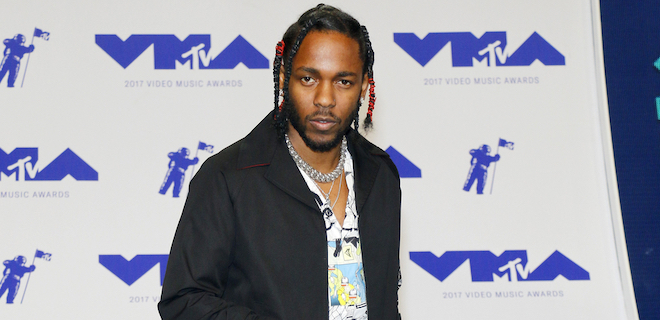
Amidst the Kendrick Lamar and Drake beef, the creator economy savors the feast as the rappers allegedly lift copyright claims from their diss songs, offering content creators an unexpected banquet of ad revenue.
This past week, nothing caught the attention of the internet and social media quite like the beef between Kendrick Lamar and Drake. The tension has been brewing for some time — most notably when Kendrick threw shots at Drake and J. Cole during his feature on Future and Metro Boomin’s joint project — but it all came to a head when Kendrick released the diss track “Euphoria” last Tuesday.
Then a lyrical sparring match commenced spanning a week and seven cumulative songs, each trying to outdo the other. The accusations and insults stemmed from silly jabs (Kendrick’s height or Drake’s plastic surgery) to more serious allegations (domestic violence and pedophilia).
Regardless of which side someone stood on or whether you believe the accusations in the songs, one thing rings true – the content produced significant engagement.
Kendrick’s song “Euphoria” broke a rap streaming record, and his song “Not Like Us” shot to number one in the U.S. Spotify and Apple Music charts. In fact, as of this moment, Kendrick and Drake’s diss tracks sit in the top five of the Apple Music chart. With reactions and critiques galore on social media focused on songcraft and political critiques such as cultural appropriation and misogyny in the genre, it was hard to escape the discourse. It’s the amount of engagement that publishers and advertisers dream of.
Yet, one of the most curious pieces of news to develop relates to the creator economy. Both Lamar and Drake allegedly removed the copyright claims on their diss tracks allowing content creators to monetize videos that include those songs.
Content Creators Experience “Euphoria”: Kendrick Lamar and Drake Allegedly Lift Copyright Claims
Content creators have been a major driving force behind this feud, spreading the news like wildfire. However, dealing with the intricacies of commercial music has proven challenging for influencers, as they frequently encounter Digital Millennium Copyright Act (DMCA) takedown orders and copyright claims issued by record labels. Even song snippets in reaction videos can trigger DMCA orders, leading to removing sound, video takedowns, or redirecting advertising revenue to record labels.
This presents a significant dilemma for influencers who rely on sharing their real-time reactions to new music releases, particularly amidst the heightened attention surrounding Drake and Lamar’s feud.
The announcement first came to light from social media influencer FaZe YourRAGE.
My Drake Reactions Are now also uncopyrighted 🙏🏾🙏🏾🙏🏾🙏🏾🙏🏾 WE EATING https://t.co/vzJGx4kE1l
— FaZe YourRAGE (@YourRAGEz) May 6, 2024
This is a significant and not commonly practiced step. It’s understandable why musicians create copyright claims over their art. As commerce intersects with art, many try to capitalize on artists through predatory practices. But for the content creator community, this could be a gamechanger. For instance, the popular YouTube music critic Anthony Fantano published six videos covering the feud. Fantano could monetize these viral videos since Lamar and Drake removed the copyright claims.
Even large streamer No Life Shaq touts how much this could benefit small creators. No Life Shaq says he has the power to remove claims because of his connections with record labels, but small creators don’t always have the same access.
Interesting! Popular streamer No Life Shaq said Kendrick helped the reaction community make “life-changing money” b/c he removed copyright claims on his music for video creators.@JustinTinsley asked how much $$ this battle will generate. Looks like the people getting some of it pic.twitter.com/sseAF3wj4Q
— Britni Danielle (@BritniDWrites) May 7, 2024
The Booming Creator Economy “Push Ups” Ad Tech Industry
No one can deny how much social media has changed digital media over the last decade. A major backbone of that is content creators and influencers who garner millions of consumers to watch their content. Even ad tech has taken notice of the booming creator economy. Many brands look to content creators to boost their content.
Even during this year’s Consumer and Electronics Show (CES), the creator economy received ample airtime. The media company Omnicom became the first holding company to strike a deal with Amazon, integrating creator content into Amazon’s Posts API, a social media-like platform within the e-commerce giant. This partnership enables influencer content distribution on a global scale, with a focus on driving sales and providing measurement tools for effectiveness assessment.
Omnicom’s integration with Amazon Posts allows organic influencer placements on the world’s largest e-commerce platform, now trackable through unique attribution capabilities. This move expands influencer marketing beyond traditional platforms like TikTok and Instagram, allowing advertisers to measure sales directly resulting from influencer content.
In the context of the rap beef, it’s not yet clear why Kendrick Lamar and Drake allegedly lifted copyright claims on their diss tracks. Maybe they’re becoming more in tune with the woes of the content creator community. With the TikTok ban looming over our heads, the struggle of influencers, publishers, and advertisers has been pushed forward to the national political stage.
Still, as the ad tech industry intersects with the creator economy, experts reveal it is a significant boost for advertisers. As Jack Koch, SVP, Research & Insights, IAB, wrote in the IAB’s Creator Economy study, “Creator content marketing is a powerful vehicle for driving full-funnel impact, and advertisers are finding tremendous success adding it to their marketing mix alongside studio content advertising.”